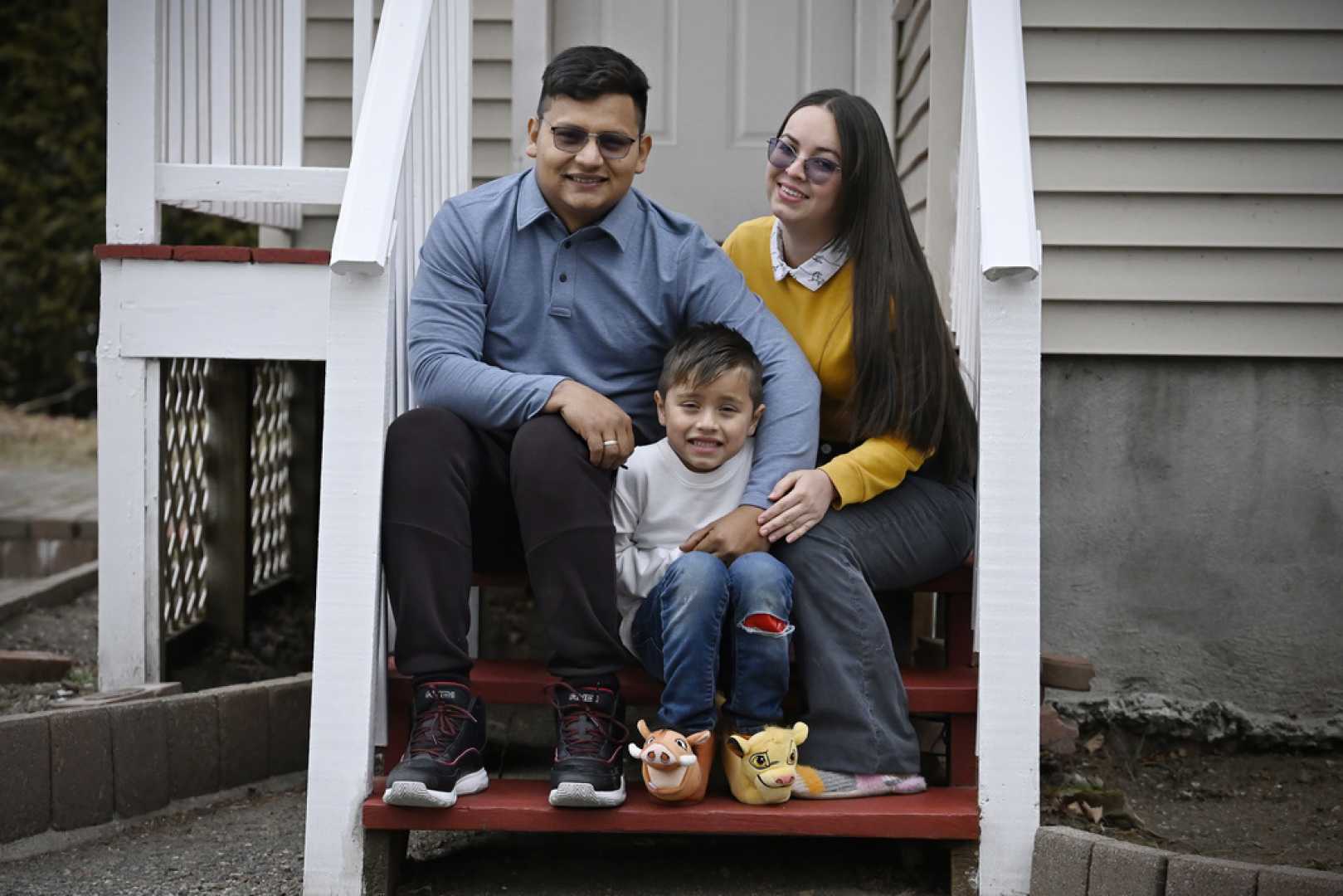News
Refugee Resettlement Agencies Race Against Time as Trump’s Second Term Looms

NEW MILFORD, Conn. (AP) — Rogers Lopez and his family are among the last refugees to find sanctuary in the United States before President-elect Donald Trump takes office, potentially closing the door on one of the nation’s longest-standing humanitarian programs. Lopez, his wife Karina Cañizarez, and their 5-year-old son Jesus, refugees from Venezuela and Colombia, were resettled in December with the help of local volunteers in New Milford, Connecticut.
The family’s arrival comes as resettlement agencies nationwide scramble to place refugees before Trump, who has vowed to “suspend refugee resettlement,” assumes office. During his first term, Trump slashed refugee admissions to historic lows, and advocates fear a similar or more severe crackdown in his second term.
“Always, the refugee process is very difficult,” said Lopez, 29, who fled Venezuela due to political persecution. “But it will be more difficult in the future.” The U.S. Refugee Admissions Program, established in 1980, has resettled over 3 million refugees. Under President Joe Biden, the program saw a resurgence, with nearly 30,000 refugees arriving in the final three months of 2024, nearing Biden’s annual cap of 125,000.
Michele Shackelford, president of the New Milford Refugee Resettlement group, expressed urgency in her work. “People are desperate to do the work right now because we have a pretty good idea that all immigration is going to cease, at least for a while, when he takes office,” she said.
Refugees like the Lopez family undergo a rigorous vetting process, including interviews, background checks, and medical screenings, often taking years. Maria Mostajo, co-founder of the Washington Resettlement Project in Connecticut, emphasized the stakes. “If Trump comes in and either puts the kibosh on these entries or reduces the number of people that can enter per year, then that basically means all these people that are in the pipeline, fewer and fewer of them are actually going to get in,” she said.
Global charities and local organizations have mobilized to expedite resettlements. Church World Service urged volunteers to create private sponsorship groups under the Welcome Corps initiative, which requires raising $2,425 per refugee for initial living expenses. In Connecticut, Integrated Refugee & Immigrant Services (IRIS) worked with community groups to resettle 130 refugees before Inauguration Day.
For the Lopez family, the support has been life-changing. “We had no idea,” Cañizarez said in Spanish. “This has been marvelous for us because these are excellent people … they took us in like we are family.”
As the clock ticks down, refugee advocates brace for an uncertain future, hoping to secure safety for as many families as possible before the policy landscape shifts dramatically.












